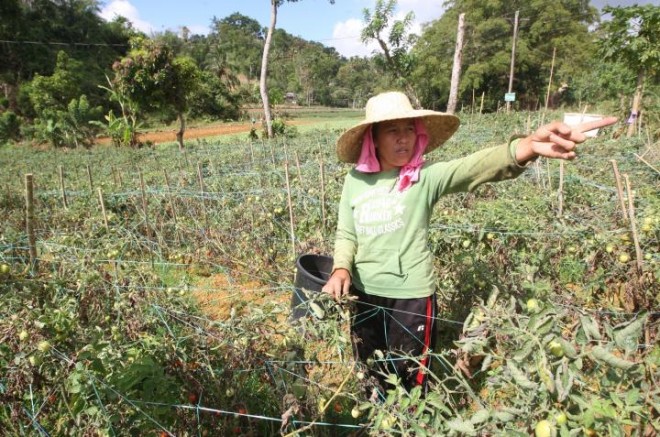‘Money grows on trees for modern farmers’
More and more youths believe that farming as a livelihood is only for the poor and Manila is the place to be.
But money could grow on trees, too, or plants if you please, said Carlicita Saniel, president of Pilipinas Association of Rural Families for Education and Development (Parfed).
“Our target now is really to have a new breed of farming. Not the traditional one where one is stuck with isang kahig, isang tuka (hand-to–mouth existence). No. Because we could go into entrepreneurship. As I’ve said, even with a 1-hectare farm you could be a millionaire. How? Integrated farming,” Saniel said at a press briefing at a hotel in Manila.
Parfed, a group that advocates the creation and development of farm schools in the provinces, believes that one can become a millionaire even with only one hectare of land if he or she knows how to manage land.
Integrated farming can help if the farmer or farm manager knows how to properly grow high-value crops, like rambutan, lanzones or durian.
Article continues after this advertisementManila not greener pastures
Article continues after this advertisementFor Saniel, those in the provinces need not seek greener pastures in Manila to have a comfortable life. What they need is to learn how to manage their farms.
She recalled that when she was still teaching in a state college, most of the students preferred courses like information technology or hotel and restaurant management over agricultural courses because the youth’s concept of farming was very “traditional.”
That was ironic, she said, with the Philippines being an agricultural country. It was alarming, too, because very few wanted to follow in the footsteps of their parents who were into farming, she added.
“[Students think] that because their parents are farmers, they’ll also go into farming, plowing fields. They only know traditional farming. If they go to a farming school, it’s not just like that. You can be a manager or a businessman,” Saniel said.
In 2013, Congress passed Republic Act No. 10618, known as the Rural Farm Schools Act. It aims to provide an alternative mode of education in the provinces, especially for high school and posthigh school students. The target is one rural farm school per province.
Entrepreneurial curriculum
Saniel noted that most of the country’s farmers are 50 years old and above.
Saniel hopes that the younger generation and their parents see the benefits of this new mode of education, especially now that many farmers are approaching their sunset years.
“We’re advocating agricultural farm schools. We are not saying you have to be like your parents and plow the land. No. After you graduate you can go into business because the nature [of our curriculum] is entrepreneurship. Or go into being a farm manager if they have their own farm,” Saniel said.
“They do not have to go to Manila for quality education. We’re already providing that [in the provinces],” she added.
Provincial agriculturist Rebecca Bagnol of Surigao del Norte province said with farming schools, students would learn not only theories but also skills, which they could use for survival. Skills, she said, make farming school students stand out.
The notion that living in Metro Manila is better than staying in the province should be dispelled, according to Bagnol.
“If we run out of farmers, who will provide us with food?” she asked. Aie Balagtas See
